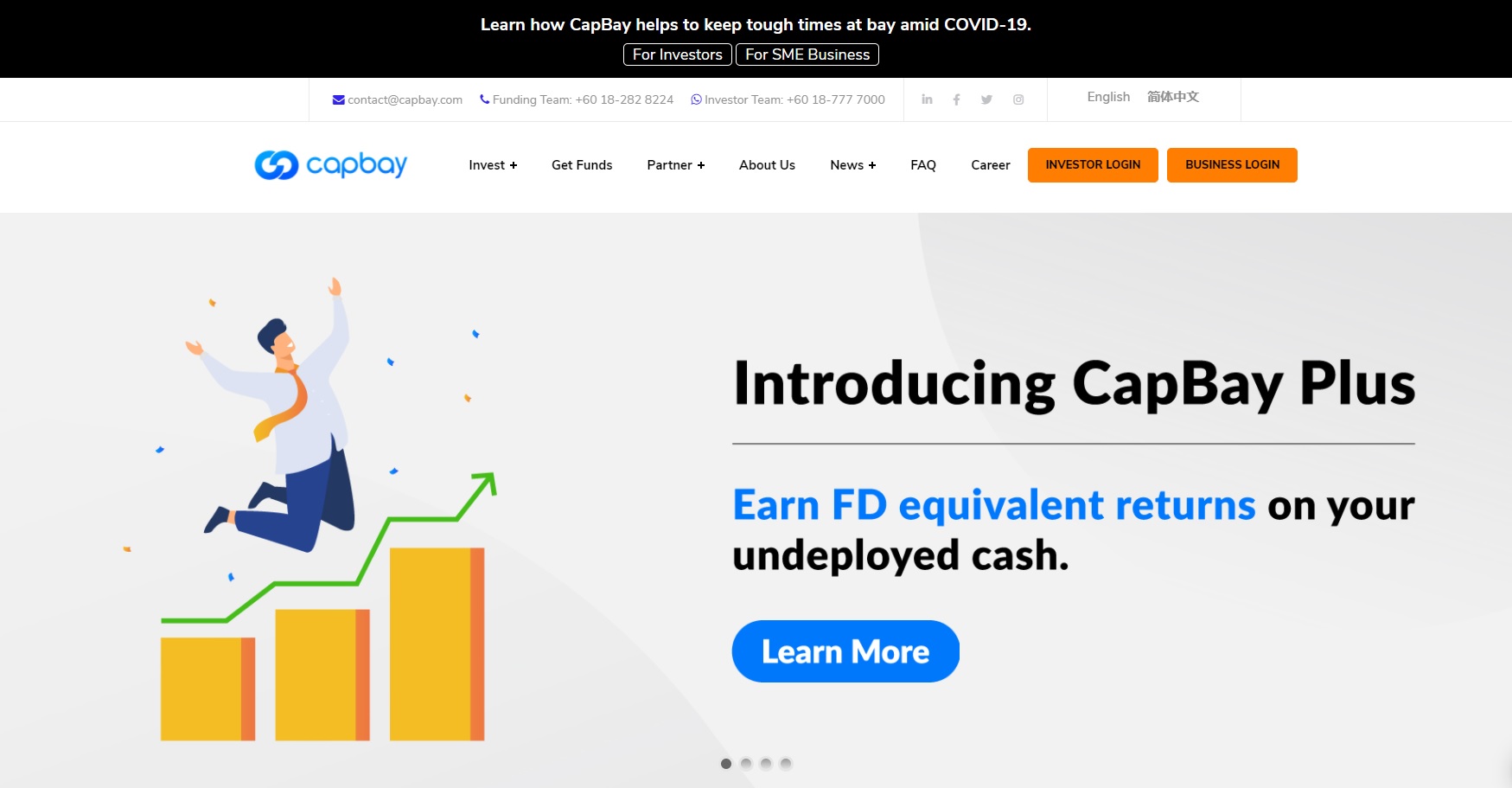COVID-19 has had a big impact in the way Malaysian businesses – especially small and medium enterprises (SMEs) – obtain finances. An Ernst & Young study on the impact of Covid-19 on Malaysian businesses conducted last year found maintaining cash flow to be a huge challenge for SMEs.
An August 2020 survey by the SME Association of Malaysia (covering 1,713 members) reveals that 22% of the respondents have sufficient cash flow to last them a month, while 27% and 31% can sustain up to three to four months respectively.
There is, undoubtedly, a gap in providing financing to SMEs quickly and easily to keep them afloat, which begs the question: is this a ridge that fintech can bridge? According to the recent Top in Tech webinar on 25 May, the answer by fintech players is a resounding “yes” – but perhaps not at a large enough scale. Not yet, at least.
As panelist Naysan Munusamy points out, SMEs make up more than 90% of businesses in Malaysia, with financing provided by banks amounting in the billions. Alternative financing fintech startups like MoneyMatch, which he co-founded, account for only a small amount.
“We need support for it [fintech and alternative financing] to grow into a European-like model, where we are really disrupting traditional players,” he says.
Strength, flexibility and variety
Elain Lockman, president of the Registered Digital Markets Association Malaysia (RDMA), agrees that there’s definitely more room for fintech and SME financing to grow. Looking at the equity crowdfunding (ECF) scene as of 31 Dec 2020, Malaysia has seen 159 successful campaigns from 150 SMEs, raising a total of US$48.12 (RM199.23 million).
[RM1 = US$0.241]
Peer-to-peer (P2P) financing, on the other hand, has seen 15,862 successful campaigns as of December 31, helping 2,801 SMEs. The total amount raised is RM1.14 billion, with 7% of campaigns having raised over RM200,000.
The numbers sound huge, but as a whole, it only accounts for a small portion of the over 900,000 SMEs in the country.
Still, Lockman stresses on the strengths alternative financing can provide. For one, there are now more fintech startups that cover financing for enterprises of various sizes, from SMEs to micro-SMEs. P2P financing, for one, is suitable even for sole proprietorship businesses.
At the same time, alternative financing is varied enough to cover funding at pretty much every financing stage, be it seed, early, growth and even in the exist stage. “Alternative financing can support SMEs throughout their life cycle. And we’re not just talking about ECF and P2P – there are lots more fintech players coming out with interesting value propositions that SMEs can look into,” says Elain.
Complementing the system
Ang Xing Xian, CEO and co-founder of multi-bank supply chain finance and P2P platform CapBay, similarly concurs that fintech only accounts for a small amount of SME financing. “But these number only tell a small story. You need to know where the money is going.”

According to Ang, most alternative financing and fintech in Malaysia target smaller businesses – businesses that require micro financing. This means that it’s properly addressing financing gaps that traditional institutions like banks often fail to bridge.
It’s easy to see banks as competitors to alternative financing or vice versa, but Ang believes they complement each other. Capbay, for one, works with banks to help finance SMEs. For Ang, banks do provide financing at low costs – the gap herein lies in their slower processes for loans. Newer and smaller businesses also find it hard to get approvals.
Fintech like Capbay and MoneyMatch complement the financial system by addressing these gaps. Capbay, with its multi-bank supply chain finance, helps businesses secure cashflow with invoice payment. For instance, Capbay can help businesses pay their suppliers first – the business can then repay Capbay in 90 days.
Alternatively, with client receivables, Capbay can provide businesses a payment first and then collect the amount from the customer.
Getting on board
The challenge now is getting people to get onboard fintech and alternative financing. “A lot of people have the fear of trying out fintech services. That’s due to a lack of familiarity, But in the time of Covid-19, this is the time to try,” says Naysan, adding that retail investors and SMEs should always ensure they are engaging through fintech startups regulated by Malaysia’s Securities Commission (SC).
For Lockman, companies that opt for alternative funding channels become better businesses, as these channels require businesses to ensure that their books are in order, that they do regular report. “These companies move on to be better businesses,” she says.
If anything, these fintech offerings to support growth. Ang says that each of their clients has grown thanks to financial supports. “It’s exciting, as we’re helping thousands of SMEs grow. We don’t see them closing down, despite tough times.”
He adds that diving into fintech doesn’t mean solely becoming a borrower – ECF and P2P too serve as good investment channels, with higher yields. Capbay has seen no defaults in their P2P financing, too, demonstrating its safety.
“It’s an opportunity for everyone to try,” he concludes.
Take this chance to sign up for Episode 14 - e-Commerce: Driving Growth with Digital, happening Thursday, 3rd June at 4pm! Register for FREE here.
Watch the replay of Episode 13 - Fintech | Bridging the SME Financing Gap here:





